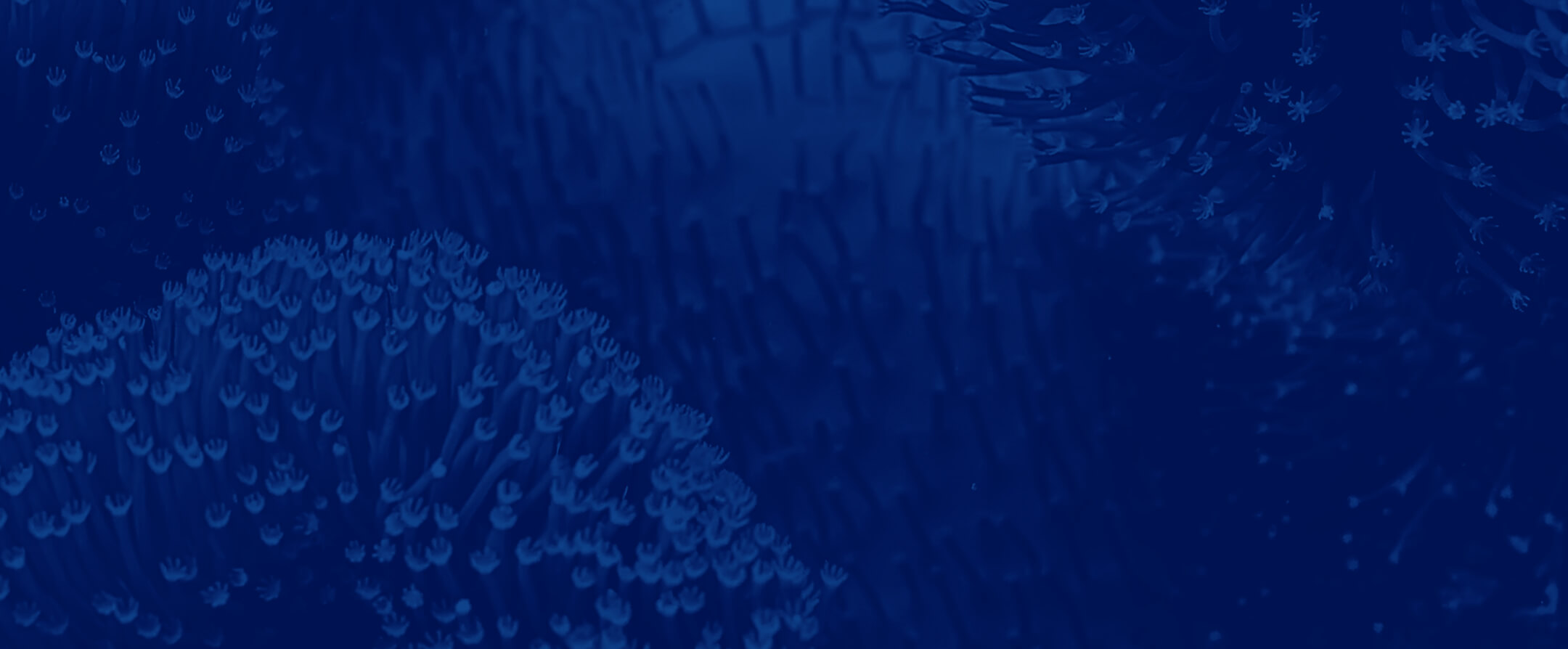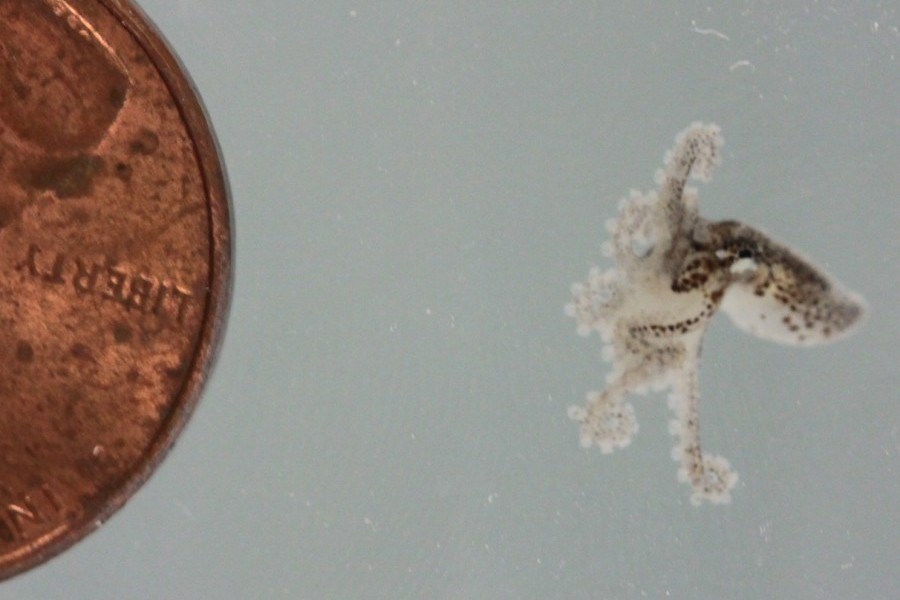Cephalopod Specialist Brian Siegel is once again tending to some eight-tentacled babies behind the scenes in The Aquarium at Mote Marine Laboratory.
You may remember hearing about the tiny Caribbean pygmy octopuses (Octopus mercatoris) Siegel was raising in March when pictures of one of them “dancing” on a pencil eraser captured the public’s attention (garnering mentions all over the place, including Scientific American and NBC’s TODAY show).
This time, he’s raising a different — but only slightly larger — species called a Caribbean reef octopus (Octopus briareus). So far, Siegel has had 16 eggs hatch, with more expected from mom, who’s still brooding over them.
At about the size of a dime, O. briareus is slightly larger at hatch than O. mercatoris. The adults are bigger, too — briareusgrows to about the size of a baseball, but mercatoris is only about the size of a golf ball. Babies of both species are fully formed when they hatch and don’t receive any additional tending-to from mom.
Both species are nocturnal and favor reefs and rocky outcroppings where they can safely stay out of the way of the many things in the ocean that are bigger and brawnier than they are — sharks are among the animals that prey on them. Both prey on small bottom-dwelling vertebrates (like small crabs and shrimp.)
Octopuses are also masters of disguise — both these species have special cells in their skin called chromatophores that allow them to change their color and texture. Because they’re so cryptic, neither species will be on display in The Aquarium anytime soon (we have to develop a new way to showcase these animals, which prefer to stay hidden and can fit into some very small spaces).
In the meantime, we invite you to visit our special exhibit, Survivors: Beautiful and Extreme Adaptations, where we are featuring a blue-ringed octopus and the flamboyant cuttlefish, which also have chromatophores and can change colors at will.Survivors is open through Sept. 14 and is free with regular admission (ticket prices at www.mote.org/visit).
Octopuses or octopi: One more tidbit for the word nerds among us…
The plural of octopus is octopuses. That’s because the word “octopus” comes from the Greek word “octopous.” The mistake that some folks make is that they think the word’s origin is Latin — in which case, the plural really would be with an “i,” making it octopi.
Sources: Webster’s New World Dictionary, Oxford English Dictionary, Fowler’s Modern English Usage. For the record, Webster’s gives “octopi” as the second choice for the plural and “octopodes”(which is the plural of the Greek word octopous) as the third choice, but “octopuses” is the preferred choice.


